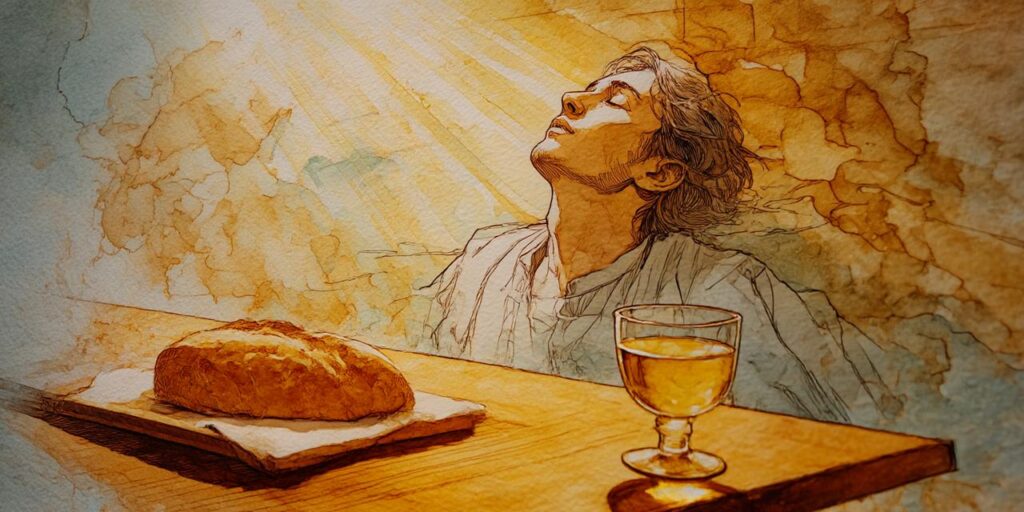
Peace
The gospel claims something bold: God offers real peace. Peace with Him, peace inside yourself, and peace with other people. But that peace isn’t automatic…

See to it that no one takes you captive by philosophy and empty deceit, according to human tradition, according to the elemental spirits of the world, and not according to Christ. For in him the whole fullness of deity dwells bodily, and you have been filled in him, who is the head of all rule and authority. In him also you were circumcised with a circumcision made without hands, by putting off the body of the flesh, by the circumcision of Christ, having been buried with him in baptism, in which you were also raised with him through faith in the powerful working of God, who raised him from the dead. And you, who were dead in your trespasses and the uncircumcision of your flesh, God made alive together with him, having forgiven us all our trespasses, by canceling the record of debt that stood against us with its legal demands. This he set aside, nailing it to the cross. He disarmed the rulers and authorities and put them to open shame, by triumphing over them in him.
Therefore let no one pass judgment on you in questions of food and drink, or with regard to a festival or a new moon or a Sabbath. These are a shadow of the things to come, but the substance belongs to Christ.Colossians 2:8-17
Paul writes to the church in Colossae with one urgent theme: don’t trade the real thing for a shadow. In Jesus, you already have everything you need. Hold fast to Him.
“Philosophy and empty deceit” (v. 8) looks wise, feels deep, and sounds spiritual. But if it doesn’t flow from Christ, it drains rather than fills. Paul’s check: Does this teaching magnify Jesus or replace Him? If it sidelines Christ, it’s a trap.
“In him the whole fullness of deity dwells bodily, and you have been filled in him” (vv. 9–10). That means:
You’re alive with Him (v. 13).
Your debt is canceled—the record nailed to His cross (v. 14).
The dark powers have been disarmed (v. 15).
What you seek in extra rules or rituals is already yours in Jesus.
Paul links the old sign of belonging (circumcision) to a heart-change God performs (vv. 11–12). Baptism then pictures that inner reality: buried with Christ, raised with Him. The water doesn’t save; Christ saves. Baptism is our public “Yes”—a confession, not a credential.
Like baptism, the Lord’s Supper is a sign and celebration:
We remember His body and blood.
We proclaim His death until He comes.
We receive afresh, by faith, what grace has already given.
The bread and cup don’t work magic; they train our hearts to feast on Christ.
“Let no one pass judgment on you in questions of food and drink, or with regard to a festival or a new moon or a Sabbath” (v. 16). These were shadows; Christ is the substance (v. 17). Legalism looks serious but shrinks the soul. The gospel makes you holy from the inside out.
Christians differ on how God uses baptism and the Supper. Scripture is clear on this: whatever our labels, grace is a gift, not a wage; faith comes by hearing, not by human power. So we hold our convictions with conviction—and with charity.
Test all teaching: Does it center Christ and His cross?
Love the signs, trust the Savior: cherish baptism and the Table as windows, not walls.
Refuse spiritual showmanship: no date-setting, no hype; “It is finished” is enough.
Stay with the church: we grow by gathering, remembering, and obeying together.
Keep the main thing the main thing: Jesus crucified, risen, and reigning.
In Christ you are forgiven, filled, and free. Don’t live like a debtor when your ledger’s been wiped clean. Don’t chase shadows when the Substance holds you fast.

The gospel claims something bold: God offers real peace. Peace with Him, peace inside yourself, and peace with other people. But that peace isn’t automatic…

Advent starts by asking us to slow down and look past the distractions. Every culture wraps Christmas in its own extras—traditions, shopping, decorations, sentimental ideas.

After Paul left Galatia, other teachers came. They questioned Paul’s authority and offered the Galatians a far more “comfortable” message…

Jesus leaves the synagogue in Capernaum and steps into a home. Simon Peter’s mother-in-law lies with a high fever.